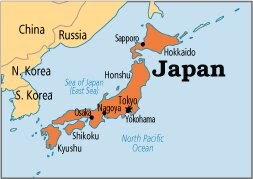International Relations
India-Japan
- 28 Apr 2021
- 4 min read
Why in News
The Prime Minister in a telephonic conversation with his Japanese counterpart discussed various issues including high technology, skill development and fighting the Covid-19 pandemic together.
Key Points
- About:
- On Covid-19 Situation:
- Highlighted the importance of close India-Japan cooperation to overcome challenges posed by the pandemic, such as by working together to create resilient, diversified and trustworthy supply chains, ensuring reliable supply of critical materials and technologies, and developing new partnerships in manufacturing and skill development.
- In this context, the two leaders emphasized the need for early operationalization of the Specified Skilled workers (SSW) agreement in order to synergize their strengths and achieve mutually beneficial outcomes.
- They also highlighted the Mumbai-Ahmedabad High Speed Rail (MAHSR) project as a shining example of their cooperation.
- Highlighted the importance of close India-Japan cooperation to overcome challenges posed by the pandemic, such as by working together to create resilient, diversified and trustworthy supply chains, ensuring reliable supply of critical materials and technologies, and developing new partnerships in manufacturing and skill development.
- On Cooperation for Indo-Pacific:
- Confirmed the importance of Japan-India bilateral and multilateral cooperation, including Japan-Australia-India-US quadrilateral cooperation, towards realising a free and open Indo-Pacific.
- On Possible Cooperation in Various fields:
- Like 5G, submarine cables, strengthening of industrial competitiveness, diversification of supply chains and development projects in the northeastern state.
- On Covid-19 Situation:
- Other Recent Developments Between India and Japan:
- Recently, India, Japan and Australia have formally launched the Supply Chain Resilience Initiative (SCRI) in a move to counter China’s dominance of the supply chain in the Indo-Pacific region.
- The SCRI aims to create a virtuous cycle of enhancing supply chain resilience with a view to eventually attaining strong, sustainable, balanced and inclusive growth in the region.
- Japan has finalised loans and a grant totalling around 233 billion yen for several key infrastructure projects in India, including for a project in the Andaman and Nicobar islands.
- In 2020, India and Japan signed a logistics agreement that will allow armed forces of both sides to coordinate closely in services and supplies. The agreement is known as the Acquisition and Cross-Servicing Agreement (ACSA).
- In 2014, India and Japan upgraded their relationship to 'Special Strategic and Global Partnership'.
- The India-Japan Comprehensive Economic Partnership Agreement (CEPA) that came into force in August 2011 covers trade in goods, services, movement of natural persons, investments, Intellectual Property Rights, custom procedures and other trade related issues.
- Defence Exercises:
- India and Japan defence forces organize a series of bilateral exercises namely, JIMEX (naval), SHINYUU Maitri (Air Force), and Dharma Guardian (Army). Both countries also participate in Malabar exercise (Naval Exercise) with the USA.
- Recently, India, Japan and Australia have formally launched the Supply Chain Resilience Initiative (SCRI) in a move to counter China’s dominance of the supply chain in the Indo-Pacific region.
Way Forward
- More collaboration and cooperation can prove beneficial to both nations, since India needs sophisticated technology from Japan.
- There is a huge potential with respect to Make in India. Joint ventures could be created by merging Japanese digital technology with Indian raw materials and labour.
- Close cooperation is the best measure to combat China’s growing role in Asia and Indo-Pacific, in physical as well as digital space.





